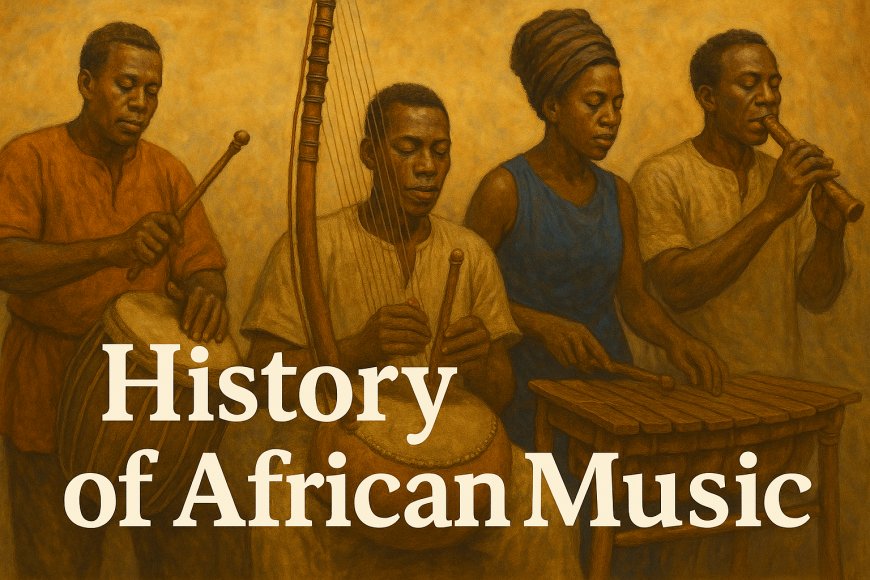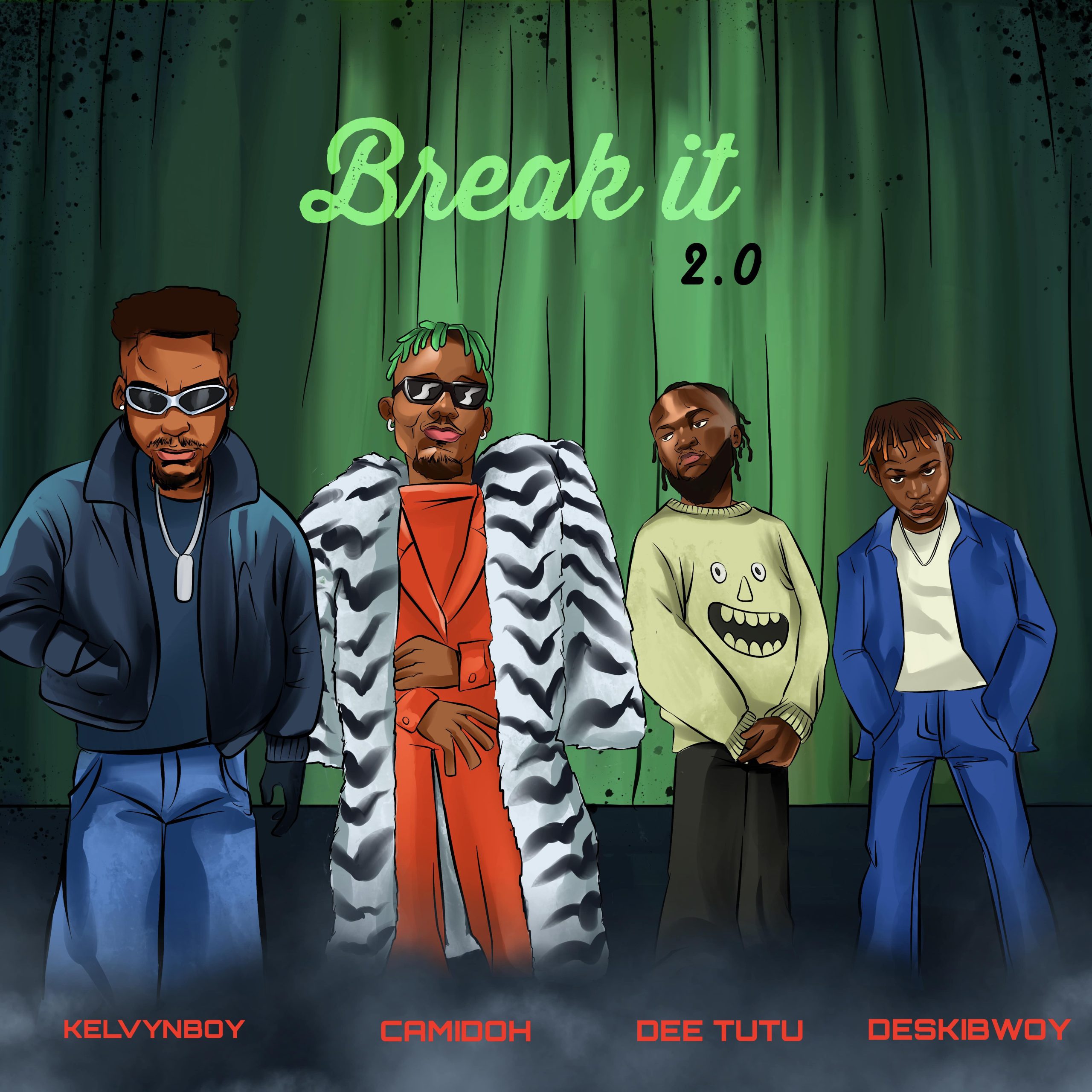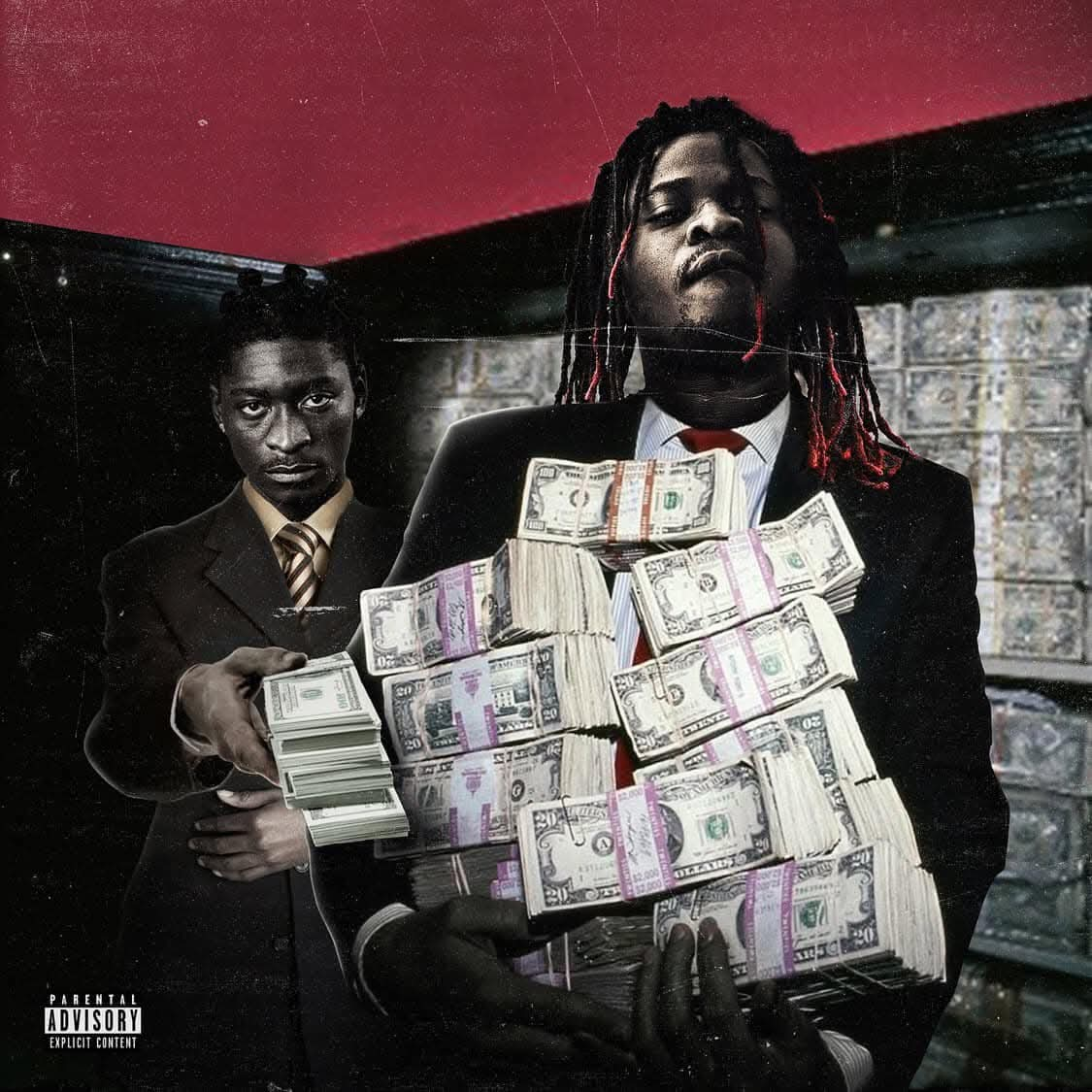History of African Music: The Origins, Evolution, and Global Influence
African music is one of the richest and most diverse musical traditions in the world. With deep historical roots, it serves not only as entertainment but as a powerful tool for storytelling, spiritual connection, and cultural preservation.

African music is one of the richest and most diverse musical traditions in the world. With deep historical roots, it serves not only as entertainment but as a powerful tool for storytelling, spiritual connection, and cultural preservation. From traditional drumming circles in West Africa to modern Afrobeats taking over global charts, African music has played a crucial role in shaping both local identities and global trends.
The Early Foundations of African Music
The story of African music begins in ancient civilizations such as Egypt, Nubia, and Kush. Music in these cultures was deeply connected to rituals, religion, and everyday life. Traditional instruments like the harp, lyre, drums, and flutes were commonly used in religious ceremonies, royal events, and storytelling. These early sounds formed the foundation of what would later become a vast and varied musical landscape across the continent.
In regions like West Africa, griots became the guardians of history through music. Griots were oral historians, musicians, and poets who passed down important knowledge, genealogies, and cultural values from generation to generation. They played instruments like the kora, balafon, and ngoni. Their songs were deeply rhythmic and often told the stories of kings, battles, and community life.
Colonial Influence and the Rise of Fusion Genres
During the colonial era, African music underwent major transformations. Colonizers introduced Western instruments such as the guitar, trumpet, and piano. These blended with indigenous rhythms and gave rise to new musical forms. One notable result of this fusion was highlife music, which emerged in Ghana. Highlife combined African drumming and melodies with Western brass and string instruments, and it quickly spread across Nigeria, Sierra Leone, and other West African countries.
In East Africa, traditional ngoma music continued to thrive, even as it absorbed outside influences. Ngoma refers to both drums and the broader cultural events centered around dance, storytelling, and music. These performances served as a way for communities to celebrate, mourn, or address social issues, maintaining their relevance in both rural and urban settings.
The African Diaspora and Global Musical Impact
One of the most powerful legacies of African music is seen through the diaspora, particularly during the transatlantic slave trade. Enslaved Africans carried their musical traditions to the Americas, where these rhythms and melodies heavily influenced the development of blues, jazz, gospel, and soul in the United States.
In Brazil and the Caribbean, African beats mixed with local traditions to create genres like samba, calypso, rumba, and reggae. These styles not only became popular forms of entertainment but also a means of resistance, empowerment, and identity for marginalized communities.
Contemporary African Music: Innovation Meets Tradition
Today, African music is more vibrant than ever. Modern artists continue to honor traditional sounds while also embracing new technology and global trends. Nigeria’s Afrobeats is a prime example of this fusion. The genre blends elements of hip hop, dancehall, and traditional African music, and has produced international stars like Burna Boy, Wizkid, and Tiwa Savage.
In South Africa, kwaito music became popular in the post-apartheid era. Kwaito features house beats layered with African percussion and expressive vocals that reflect the experiences of urban youth. Similarly, genres like Amapiano, Gqom, and Bongo Flava are reshaping how the world hears African sounds.
Digital platforms like YouTube, TikTok, and Spotify have made it easier for African artists to reach global audiences. Today’s African music is not confined by geography. Instead, it thrives as a global movement that continues to shape mainstream music across continents.
Why African Music Matters Today
African music is not just about rhythm and melody. It is a living expression of identity, community, and resistance. It continues to evolve, telling stories of love, struggle, celebration, and hope. Whether it is a traditional drum circle in a Ghanaian village or a sold-out stadium concert in London featuring African artists, the continent's music remains a powerful cultural force.
African music is also a key driver in tourism, cultural preservation, and international collaborations. More festivals, documentaries, and academic research are helping to educate the world about Africa’s immense contribution to global music.
Final Thoughts
The history of African music is a journey of resilience, creativity, and global influence. As more artists push boundaries and introduce new sounds, the world continues to dance to the heartbeat of Africa. This musical heritage is not just important to the continent but to the entire human story.
What's Your Reaction?
 Like
0
Like
0
 Dislike
0
Dislike
0
 Love
0
Love
0
 Funny
0
Funny
0
 Angry
0
Angry
0
 Sad
0
Sad
0
 Wow
0
Wow
0






























